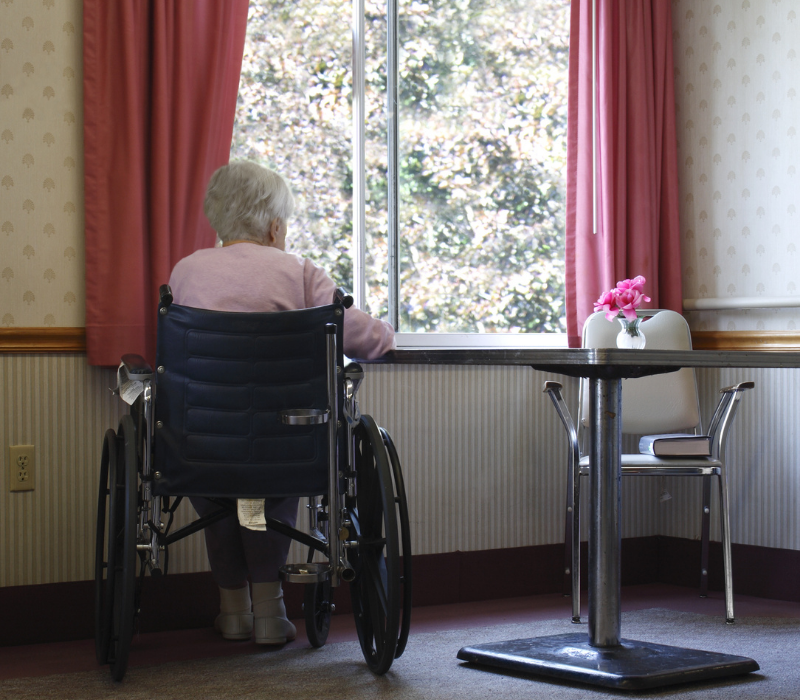
PE is continuing to acquire — and bankrupt — nursing homes
April 23, 2025
Private equity firms remain active in acquiring nursing homes, despite claims to the contrary. This activity continues to pose significant risks to residents and workers due to profit-driven practices, high debt levels, and complex real estate transactions.Current estimates suggest that private equity firms own between 5% and 13% of US nursing homes.
In recent years, at least two nursing home companies owned by private equity firms and a private equity firm that itself owned nursing homes, have filed for bankruptcy. Impacts from these bankruptcies include facility closures and quality of care issues for residents. Nursing homes have also had to confront financial risks as their owners take on debt in the form of private credit issued by lenders owned by private equity.
To download the reportclick here.
While the previous Biden administration increased scrutiny of the nursing home industry and sought to implement reforms, the current Trump administration’s focus on deregulation poses challenges to oversight. Consequently, state legislatures may be the most effective avenue for enacting necessary protections. The report includes policy recommendations to increase transparency, financial accountability, and quality of care in nursing homes.
This report attempts to document the scope of private equity in nursing homes and examine the implications for healthcare workers and residents.
Key Points
- Private equity has remained active in buying up skilled nursing facilities (i.e. nursing homes) in recent years, even as less attention has been placed on this activity.
- Complex ownership structures and lack of transparency around private equity in general make it difficult to track which firms are currently invested in skilled nursing facilities.
- Recent estimates for the percentage of US nursing homes owned by private equity range from 5 to 13 percent. The higher estimate is more likely given the continued issues around nursing home ownership transparency.
- After the Biden administration increased scrutiny of private equity’s involvement in the nursing home space and in healthcare more generally, industry voices have attempted to downplay private equity’s involvement in nursing homes.
- Recent industry messaging has suggested that private equity has not made nursing home acquisitions in recent years. PESP identified at least six private equity-backed nursing home deals in the previous three years. This number is likely an undercount, as PESP’s methodology used to identify deals was not exhaustive.
- Nursing homes owned by private equity continue to face risks related to profit-seeking, use of debt, and monetization of real estate, which can leave fewer funds for operations and staffing.
- At least two nursing home companies owned by private equity firms and a private equity firm that itself owned nursing homes, have filed for bankruptcy in recent years: LaVie Care Centers/Consulate Health Care (Formation Capital) in 2024, Goldner Capital Management in 2024, and Gulf Coast Health Care (Barrow Street Capital) in 2022.
- As part of LaVie Care Centers’ 2024 bankruptcy proceedings, the court ordered regular status reports on the quality of patient care to be conducted by state long-term care oversight entities. The reports describe harrowing conditions at multiple LaVie/Consulate facilities in Virginia, Mississippi, and Pennsylvania.
- Leading up to the bankruptcy of Goldner Capital Management, multiple nursing homes it owned had unpaid creditors and at least four received termination notices from CMS, effectively shutting them down and forcing residents to relocate.
- Gulf Coast Health Care’s private equity ownership has not previously been reported on, perhaps because of the complexity and secrecy of its ownership and operations revealed only through its bankruptcy filings.
- Recently, nursing homes have also had to confront financial risks as their owners take on debt in the form of private credit issued by lenders owned by private equity. MidCap Financial, a private lender affiliated with Apollo Global Management, has been the lender for at least one nursing home company and two hospitals that have filed for bankruptcy.
- The Biden administration brought greater scrutiny to private equity’s investments in nursing homes, with increased federal efforts at bringing more transparency to, and setting minimum staffing standards for, nursing homes.
- The current Trump administration poses significant challenges to private equity regulation, as weakening the administrative state and deregulating the corporate sector appear to be among its top priorities.
- With the current federal regulatory and policymaking landscape becoming an increasingly challenging place to create much needed policy changes and to enforce current regulations, state legislatures may prove the most likely avenues to win legislation necessary to protect patients, workers, and communities from private equity’s harms in nursing homes, and in healthcare more generally.
- Private equity firms rely on the fact that there is very little oversight over what they do, and for that reason it is more important than ever to continue to shine a light on private equity’s investments in nursing homes.
